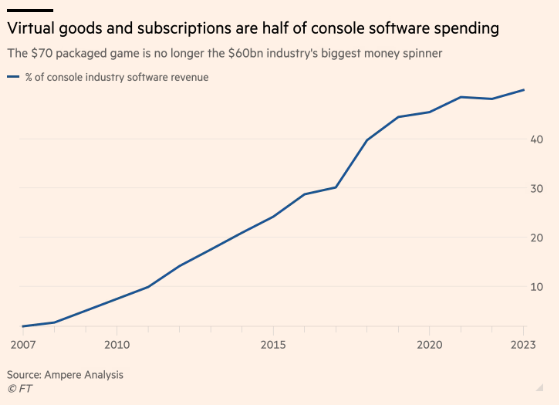this post was submitted on 16 Aug 2023
99 points (98.1% liked)
Games
32467 readers
1007 users here now

Welcome to the largest gaming community on Lemmy! Discussion for all kinds of games. Video games, tabletop games, card games etc.
Weekly Threads:
Rules:
-
Submissions have to be related to games
-
No bigotry or harassment, be civil
-
No excessive self-promotion
-
Stay on-topic; no memes, funny videos, giveaways, reposts, or low-effort posts
-
Mark Spoilers and NSFW
-
No linking to piracy
More information about the community rules can be found here.
founded 1 year ago
MODERATORS
you are viewing a single comment's thread
view the rest of the comments
view the rest of the comments


You are correct, but as someone who has worked in F2P mobile for a decade, it is true that most profitability comes from whales, at least in this market. You might have hundreds of thousands who spend as you mention (dolphins or minnows), but as a percentage of revenue, that aggregate is considerably smaller than the aggregate of whales: I’ve seen that ratio as high as 5:95 on a financially successful mobile F2P 4X strategy game, meaning 5% of total revenue coming from players with a lifetime spend of less than $250, 95% of total revenue coming from those above that. The populations of those groups is usually the opposite (very few whales vs. many dolphins and minnows).
Not all F2P models swing heavily into “whale-based”, but the traditional wisdom is similar to the casino industry. Large corporate companies often have small teams dedicated to servicing VIP players, ensuring they come back to the game through attractive offers or other gifts (https://www.gamesindustry.biz/how-does-zynga-hunt-for-whales-this-week-in-business).
Another component that people don’t understand is that often these aren’t “normal people” in terms of their income. We had geo-tagged data, so when you’re looking at your high level VIPs north of a million in lifetime spend, you’re talking about someone in UAE, someone in Petersburg, someone in Hong Kong, or someone in the Texas oil fields. That’s not to provide moral ammunition, but it is a different viewpoint from these games preying on people who don’t have money. A lot of whales have so much money, they just don’t care about spending $100s or $1,000s at a time.
Finally, I personally know at least 1 divorce caused by a game I worked on: the husband couldn’t stop spending, and it led to a separation. There are likely more. By the same token, I also know marriages caused by that same game.
If people are having issues with spending, please stop playing, stop spending, get help. If people don’t want this to be the dominate model, they need to support with their wallets. Having said that, there’s more free games to play than when I grew up. I do think that is pretty cool.
Microtransactions need to be regulated the way casinos are. Companies won't do the right thing unless they are forced to.